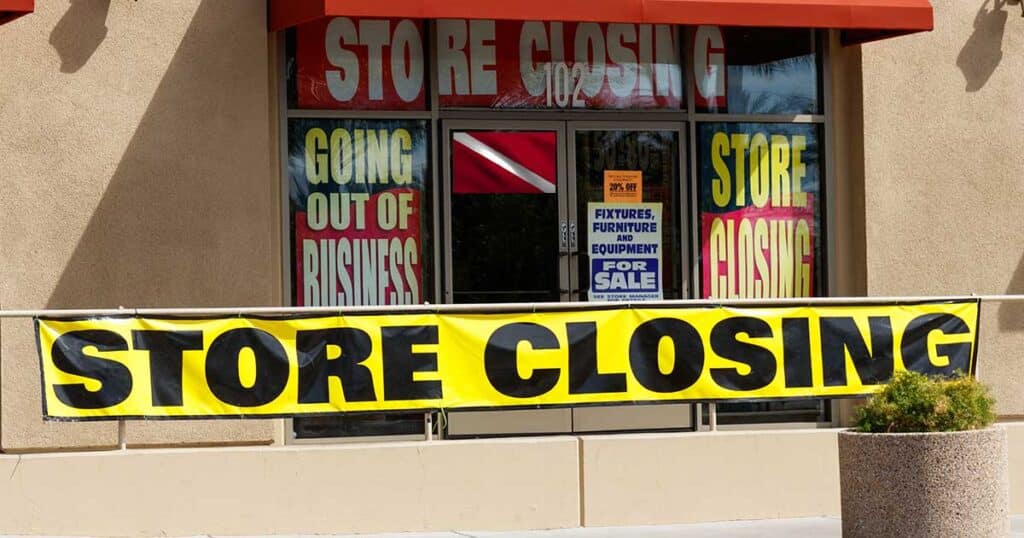What can happen when a low-ball competitor closes?
A local discount dive store closes its doors. Is this a good thing or bad? It will depend on several factors. It may result in increased sales and profits. But there may also be drawbacks, such as an influx of the type of customers you don’t want.
Possible Benefits
- Increased market share: Customers who were once loyal to your discount competitor may now come to you. This may require targeted marketing so that these customers come to you and not to another competitor.
- Better margins: Without the need to complete on price, you may be able to adjust margins to increase profitability.
- Increased bargaining power: If you and the now-defunct store shared suppliers, you may now be able to negotiate better pricing. You may also be able to acquire product lines that were exclusively your former competitor’s.
- Increased operational flexibility: Without having to match what a competitor was doing, you may be able to make changes that increase profitability or simply make doing things easier. For example, if you were including boat dives as part of your courses because that’s what your competitor did, you may be able to shift to less-costly shore dives.
- Increased consumer confidence: If your former competitor engaged in questionable business practices, their absence may bolster consumers’ confidence in dive retailers in general.
Possible disadvantages
- New competitors: The absence of your former competitor may encourage others to take their place. These new stores may be no better than the one they replace or even worse.
- Price-sensitive shoppers: If the now-defunct store marketed solely on price, their former customers may have unrealistic notions of cost. They may need to be taught the difference between price and value.
- Temporary shoppers: Some of the former store’s customers may have shopped there solely because of location or convenience. Should another, closer store open, you may lose them as quickly as you gained them. You won’t want to invest heavily in attracting these consumers.
- High-maintenance customers: Your former competitor may have offered products and services you don’t. This can lead to an influx of customers with unrealistic expectations. You must decide whether it is worth your time to meet their needs. (It usually isn’t.)
- Customers with different expectations: Let’s say your former competitor heavily promoted technical diving. ‘Nothing wrong with that, but it may not be an activity where you can meet their customers’ needs. Or let’s say the now-defunct store ran trips that focused heavily on drinking and partying. This may not be how you run your trips. In any event, these customers are not worth your time.
A good thing or bad?
The close of a discount competitor doesn’t always benefit your business. There will be plusses and minuses. Focus on what you do best and be wary of new customers who may not be worth your time.
Author Kary McNeal operatos Aquatic Ventures in Fort Lauderdale.

